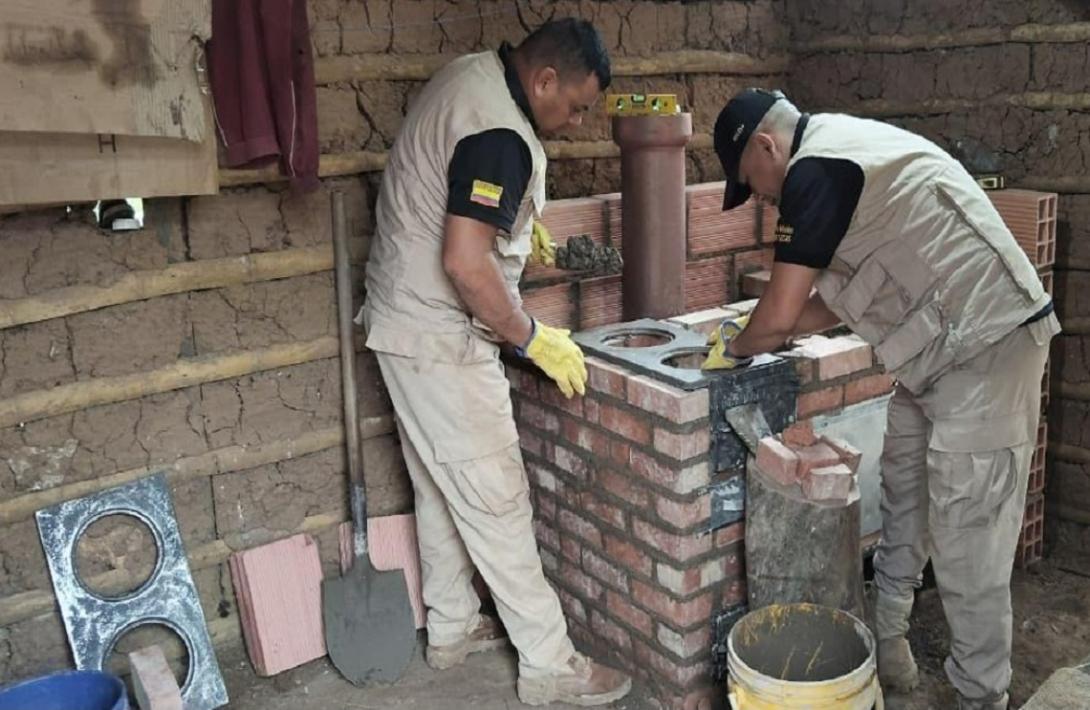This initiative has benefited more than 70 families found in rural areas of Santander department, Caquetá department, Huila department, Putumayo department, La Guajira Department, Antioquia department and Meta, territories historically disturbed by the suspicion of anti-personnel mines.
For more than 20 years, many families relied on traditional wood-burning stoves, which disturbed their health and the environment. Thanks to a strategic alliance conducted by humanitarian demining and the private company working for social responsibility, this vulnerability was identified and the distribution of eco-efficient stoves began to improve the living conditions of these communities, reducing the consumption of firewood and the associated negative impacts.
Sergeant Javier Aguilar, a non-commissioned officer for comprehensive operation of the Humanitarian Demining Brigade, explains that the first pilot of this initiative - led by the private company and with the labor of the mine clearance specialists of Colombian National Army — was implemented in Chaparral, department of Tolima, where three families were benefited. Today there are already 71 kitchens that have been built in different regions of the country.
“The annual goal of the eco-efficient stoves project, sponsored by the private company and with the support of Colombian National Army, is the construction of more than 80 stoves in different rural areas. The only requirement is that the communities are really in vulnerability and need this kind of support. On average, a soldier builds a stove in two and a half days, and although we work at maximum capacity, we are limited by the time available. To date, 71 kitchens have been distributed and 21 more are in the framework to meet the annual goal,” says the non-commissioned officer who leads this humanitarian operation.
However, this operation is not without its challenges. The security conditions in areas contaminated with explosive devices and the limited access to some regions make it difficult to transport the necessary material.
Many of these areas lack adequate roads, so materials such as bricks, pipes and cement have to be transported by track roads and even by mules, which demands a lot of logistical work. Despite this, the peasants of the benefited communities actively collaborate in the process, facilitating the progress of the works.
Source: Press – Humanitarian Demining Brigade

